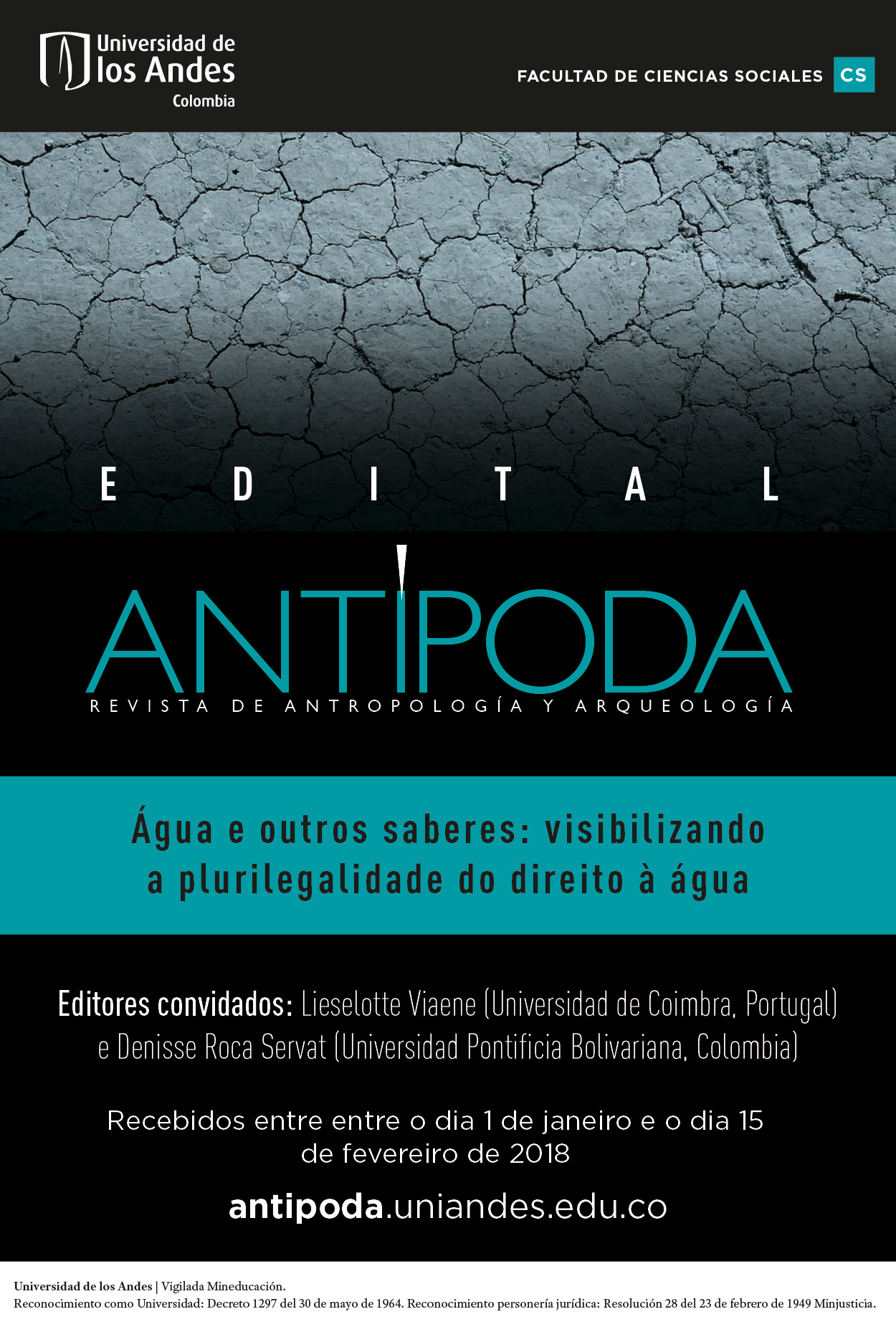Call for papers
Water and other knowledges: making the plurilegality of the right to water visible
Editors: Lieselotte Viaene (Universidade de Coimbra, Portugal) e Denisse Roca Servat (Universidad Pontificia Bolivariana, Colombia)
As a source of life itself, water lies at the epicenter of major socio-economic conflicts which lead to violations of a variety of human rights. On the one hand, conflicts over the right to access water are increasing and on the other, there are growing battles between different water cultures. These conflicts are unfolding in a reality of historic power inequalities, linked to colonialism and differences in class, gender and ethnicity, among others. In the face of these problems, all over the world a variety of social groups systematically excluded and silenced by colonialism and neoliberalism are claiming a different human - nature relationship. They make other relationships with water visible which not only question the hegemonic view of human rights, the dominant scientific knowledge and the logics of the neoliberal market, but also reveal an alternative way of being and living.
In 2010, the General Assembly of the United Nations explicitly recognized “the human right to water” as an essential to the full enjoyment of all human rights. As this is considered a “new” human right, it is to be expected that international, regional and domestic jurisprudence will further elaborate its contours and scope. Moreover, the anthropology of human rights shows that in processes of legal translation, local realities not only make us aware of alternative knowledges and relationships of law but also situations of interlegality and interculturalism where diverse legal fields interact in unequal conditions of power. An anthropological approach to this question will reveal other plurilegal relationships and realities of water, raising unexpected perspectives for the discussion regarding the right to water.
Antípoda. Revista de Antropología y Arqueología invites the academic community to submit, between January 1 and February 15, 2018, articles that present ethnographic research and reflections which seek to re-conceptualize the content and scope of “the human right to water”, in the context of the neoliberalization of nature and the dominance of modern anthropocentric views. This call for papers is based on the premise that we need to make other ethnic, indigenous and afro-descendant knowledges visible in order to build other relationships with water which aim at plurilegality. We are looking for articles which review the scope of this “new” human right both on a normative and practical level, acknowledging other water knowledges and relationships. We are also interested in articles which give visibility to other grammars of water rights which challenge the hegemonic human rights views. We welcome all proposals which critically discuss convergent, complementary and divergent perceptions of this universal body of norms that foment new de-colonialized thoughts and actions.
The thematic axes covered by this call for papers are: Plurilegal analyses of water conflicts. Water as a source of life versus water as a natural resource. Water and indigenous/afro-descendant/ethnic justice systems. Mechanisms for recognizing other water knowledges in prior, free and informed consultation processes. Water natures and political ontology and/or political ecology studies. Intercultural and knowledges dialogues about water.
The selected articles will be published in the thematic sections of No. 33 of Antípoda (January-April, 2019). Submissions should be made through the platform for receiving articles whose link is found on our website. The essays may be submitted in Spanish, English and Portuguese. All the information needed about the editorial procedures and norms for authors is available at our website: Editorial Policy
For more information, please write to: antipoda@uniandes.edu.co aguawaterantipoda@gmail.com
.jpg)


